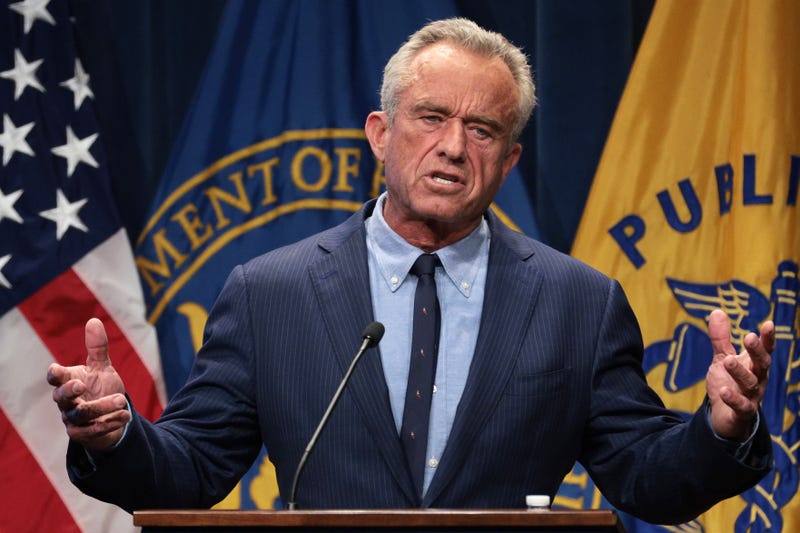
Health secretary Robert F. Kennedy Jr. warned that children in the U.S. are being diagnosed with autism at an “alarming rate,” promising on Wednesday to conduct exhaustive studies to identify any environmental factors that may cause the developmental disorder.
His call comes the day after the Centers for Disease Control and Prevention released a report that found an estimated 1 in 31 U.S. children have autism, a marked increase from 2020.
“Autism destroys families," Kennedy said. "More importantly, it destroys our greatest resource, which is our children. These are children who should not be suffering like this.”
Kennedy described autism as a “preventable disease,” although researchers and scientists have identified genetic factors that are associated with it. Autism is not considered a disease, but a complex disorder that affects the brain. Cases range widely in severity, with symptoms that can include delays in language, learning, and social or emotional skills. Some autistic traits can go unnoticed well into adulthood.
Those who have spent decades researching autism have found no single cause. Besides genetics, scientists have identified various possible factors, including the age of a child’s father, the mother’s weight, and whether she had diabetes or was exposed to certain chemicals.
CBS News reporter Alexander Tin notes that the methodology the CDC uses needs to be considered.
"We should be clear that the one difference from previous years where the CDC has released this study, is that in all previous releases of the study there was always a press briefing where CDC scientists were allowed to come and answer questions from reporters about their findings and explain their methodology," says Tin.
Kennedy said his wide-ranging plan to determine the cause of autism will look at all of those environmental factors, and others. He had previously set a September deadline for determining what causes autism, but said Wednesday that by then, his department will determine at least “some” of the answers.
"The CDC has said for a long time, including in this latest study, that it's believed that one of the largest reasons we have seen this increase in prevalence that's so varied in different communities," CBS" Tin adds. "Some communities are much higher than others because of exactly that, a variation in how well some communities have been able to improve access to services, to diagnose, treat, and screen children for autism."
The effort will involve issuing grants to universities and researchers, Kennedy said. He said the researchers will be encouraged to “follow the science, no matter what it says.”
The Trump administration has recently canceled billions of dollars in grants for health and science research sent to universities.
The CDC’s latest autism data was from 14 states and Puerto Rico in 2022. The previous estimate — from 2020 — was 1 in 36.
Boys continue to be diagnosed more than girls, and the highest rates are among children who are Asian/Pacific Islander, American Indian/Alaska Native and Black.
To estimate how common autism is, the CDC checked health and school records for 8-year-olds, because most cases are diagnosed by that age. Other researchers have their own estimates, but experts say the CDC’s estimate is the most rigorous and the gold standard.
On Wednesday, Kennedy criticized theories that the rise in autism cases can be attributed to more awareness about the disorder. Autism researchers have cited heightened awareness, as well as medical advancements and increased diagnoses of mild cases.
“The reasons for increases in autism diagnosis come down to scientific and health care progress,” said Annette Estes, director of the autism center at the University of Washington. "It's hard for many people to understand this because the causes of autism are complex.”
The Associated Press contributed to this story.
